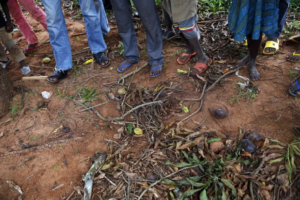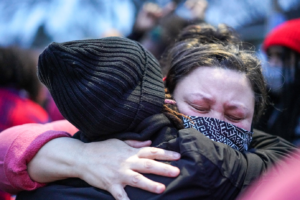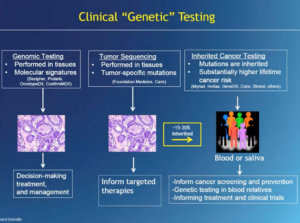Lee Yaron was in the midst of a Columbia University fellowship focused on climate change when she learned of the Oct. 7, 2023 Hamas attack in Israel.
Yaron, an Israeli who spends part of the year living in Manhattan, was overwhelmed by news of the carnage. She also felt compelled to do something.
As a journalist for the Israeli newspaper Haaretz, where she’s worked for over a decade, she turned to the tool she knew best: reporting.
Within days of the attack, Yaron, 30, was on a flight bound for Israel where she began interviewing hundreds of survivors, victims’ families and eyewitnesses. Through personal accounts gathered over several months, she set about chronicling the most traumatic day in Israeli history.
The result, published in late September, is Yaron’s “10/7 100 Human Stories” (St. Martin’s Press), a book that aims to provide the definitive account of that day of terror through the stories of those who lived through it.
Need a break? Play the USA TODAY Daily Crossword Puzzle.
Why the stories matter
Yaron’s work is among several in the media that have sought to document that epochal moment and its aftermath in the year since Oct. 7. Others include the play “October 7: In Their Own Words,” which ran in New York and New Jersey in recent months, and “The Nova Exhibition,” a collection of artifacts from the Nova Music Festival massacre, which appeared in Manhattan last summer.
Yaron’s book attempts to explore the attack in a fuller historical context. The book blends intimate personal narratives with regional history and political analysis of the Israeli-Palestinian conflict, hoping to paint a deeper understanding of the tragedy.
The journalist said she didn’t try to politicize or sensationalize the trauma but merely allowed the civilian victims to share the horrors of what occurred in their own words.
Pulitzer Prize winning author Joshua Cohen, who is Yaron’s husband, observes in the preface that, “it is possible to read this book and finish it with a desire for revenge, and it is equally possible to read this book and finish it with a renewed commitment to peace.”
Yaron profiles a range of people, including former Hamas hostages who discussed their time in captivity, left-wing peace activists who yearned to live side by side with their Gazan neighbors, refugees who fled violence in Arab countries and thought they’d found a safe haven in the Holy Land and Bedouin and Muslim Arabs who became victims because they worked or lived in Israel.
One of October 7’s youngest victims
Among the youngest casualties was a Muslim Israeli baby, said Yaron. Her book describes the desperate attempt by the mother, Sujood, and her husband, Triffy, to flee the attack in southern Israel by car as Sujood went into labor.
“As the rockets began falling on Road 232, Triffy apologized to Sujood, who was experiencing labor pains: they’d have to take a detour,” Yaron wrote. “He was concerned for the safety of his little brother, Bilal, left alone in the family’s pastureland, and decided to turn back and pick him up.”
Along the way, however, they were “boxed in” by two white vans. A man with a submachine gun emerged from one of them.
“The man opened fire on them,” Yaron continued. “Triffy swerved sharply to the right, narrowly escaping the ambush. As he glanced over, he saw Sujood bleeding from her abdomen—a bullet had penetrated the car.”
Later, they are fired on again. The unborn child was killed. Sujood survived but was left traumatized, Yaron recounts. “She didn’t even have a name” for the baby, Yaron said in an interview. “Imagine this happening on what should be your happiest moment.”
In an era of extreme polarization, these human stories are more essential than ever, Yaron said. “I believe in the power of empathy to build bridges in coexistence,” she said. “Israelis and Palestinians have become blind to each other’s pain and grief. Before any political solution is a human solution and that is empathy.”
Assessing the toll in Gaza
A self-described “liberal Zionist,” Yaron isn’t blind to the suffering of Gazans herself. In the introduction to her book, she describes the devastation in Gaza. “Men, women and children who had nothing to do with the crimes of Hamas have wound up paying the heaviest price,” she wrote.
Much of Gaza has been damaged or destroyed in Israel’s year-long counterattack against Hamas. The Palestinian death toll in Gaza exceeds 43,000, according to the Hamas-run Gaza Health Ministry.
“While I share the grief of Palestinians, and bear the weight of our entangled histories, I know that Palestinian stories, especially now, are not my stories to tell,” Yaron wrote in her book.
The book is being published in nearly a dozen countries including Germany, Romania and France. Yaron hopes it will be translated into Arabic as well as a means of bridging the gap, she said.
“The human story is the best way to create this empathy. Literature has the power to do that,” she said. “I hope it will be a first step.”
Yaron is a New York correspondent for Haaretz, Israel’s oldest newspaper. During her career, she has focused on people in the margins of society, including the LGBTQ community, victims of sexual abuse and asylum seekers. In her articles, she aims to describe their situation “from the bottom up,” she said, adding that she tried to do the same in her book.
Lee Yaron’s book offers counterpoint to ‘the politicians’
“We’ve been flooded” with information about the conflict, but much of it comes from people at the top, Yaron said − “the politicians and those that created the conflict − not the victims.” Her book aims to help victims reclaim their stories, she said.
For Yaron, the granddaughter of Holocaust survivors, Oct. 7 was not just a part of Israeli history, but a part of Jewish history. “When the fence was broken on Oct. 7 [at the Gaza border,] a lot of Israelis felt their sense of security was broken too,” she said.
For many Holocaust survivors and their families who flocked to Israel, for European immigrants who fled pogroms or immigrants from Arab countries who fled discrimination and violence, Israel once represented safety, Yaron said.
Now, “That dream has been shattered.”
The attack also destroyed the visions of many on the Israeli left − particularly those in the southern Israeli communities bordering Gaza − who believed deeply in the prospect of peaceful co-existence. “They donated money to Gazan families, helped them find work and drove sick Palestinian children to Israeli hospitals,” she said.
“They destroyed the very communities that did more than any others to promote peace between the two peoples.”
Among the profiles in her book is that of Shachar Zemach, a peace activist from Kibbutz Beeri who fought for a two-state solution. When Hamas fighters stormed the kibbutz, they killed over 100 residents and took dozens of hostages. Then, they encountered Zemach.
As Yaron relates, Shachar told the people with him they should try to surrender. “He stood up, raised his hands, and said in English, “I am not your enemy. Please, let’s all just go back home.’ He died in a storm of bullets.”
A journalist deals with her own grief
At times, it felt unbearable for her to hear one sad story after another. In the midst of one interview, Yaron received news that a childhood friend had been killed during a December military operation in Gaza that led to the recovery of several hostages’ bodies.
Suddenly, Yaron wasn’t just a detached reporter taking down information: She was on the other side of grief, feeling a similar pain that her subjects had described.
“As a journalist I am accustomed to having boundaries between the professional and personal life. We are all mourners now,” Yaron said. “It’s been a yearlong shiva. It’s hard to know if I am a journalist or a mourner. I never had a project like this where the boundaries are so unclear,” she said.
“10/7 – 100 Human Stories” is dedicated to that friend, Gal Eisenkot, 25, who was the son of former Israel Defense Forces Chief Gadi Eisenkot.
“For me the book was a way to commemorate people’s’ lives,” Yaron said. “This was a reason so many of the families agreed to speak to me. They felt like there’s not much they can do for their loved ones except to keep their humanity on paper.”
Deena Yellin covers religion for NorthJersey.com. For unlimited access to her work covering how the spiritual intersects with our daily lives, please subscribe or activate your digital account today.
Email: yellin@northjersey.comX/Twitter: @deenayellin




